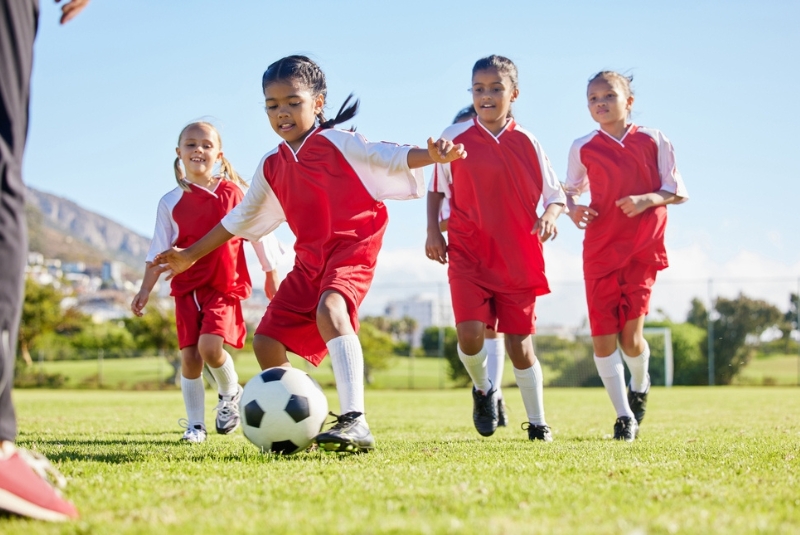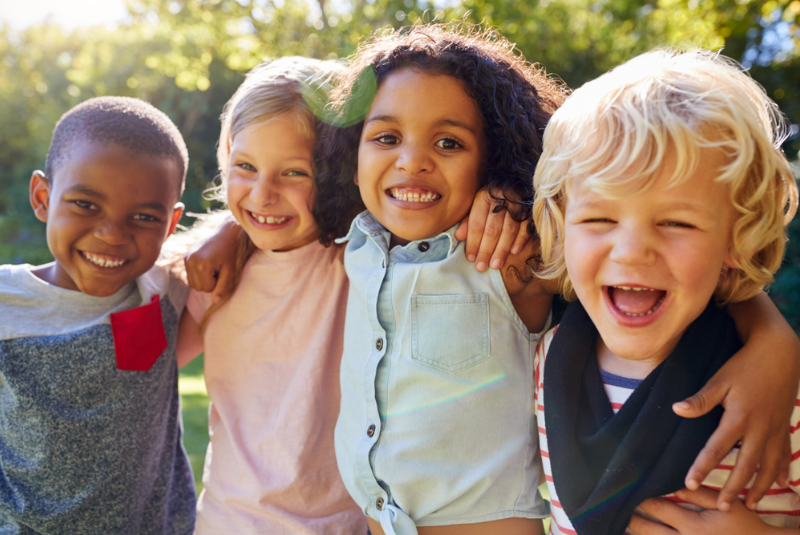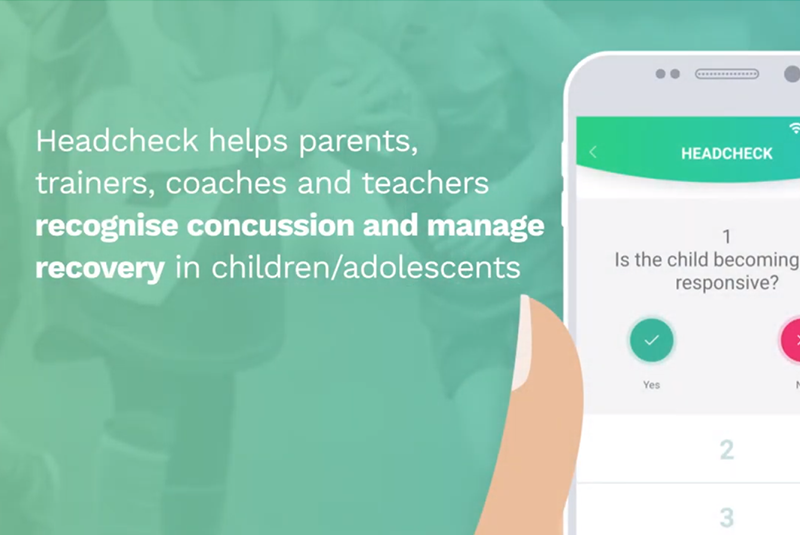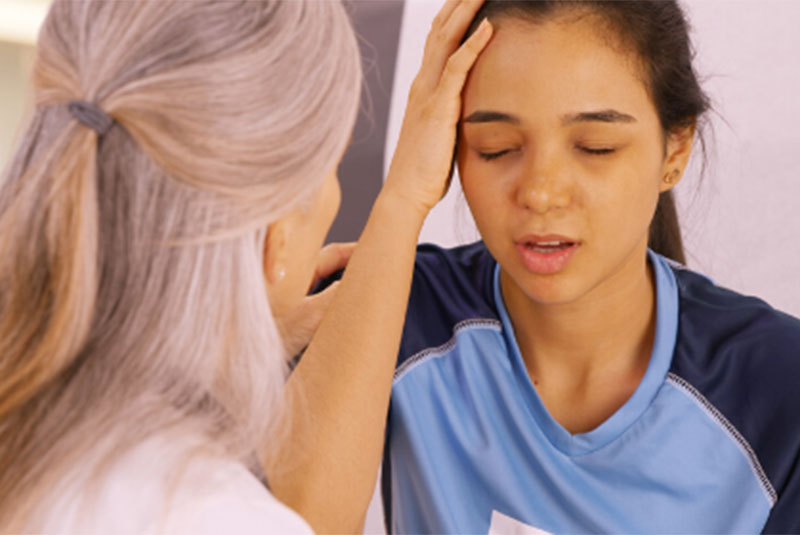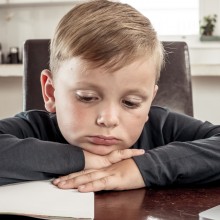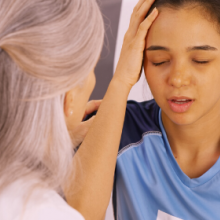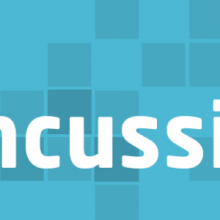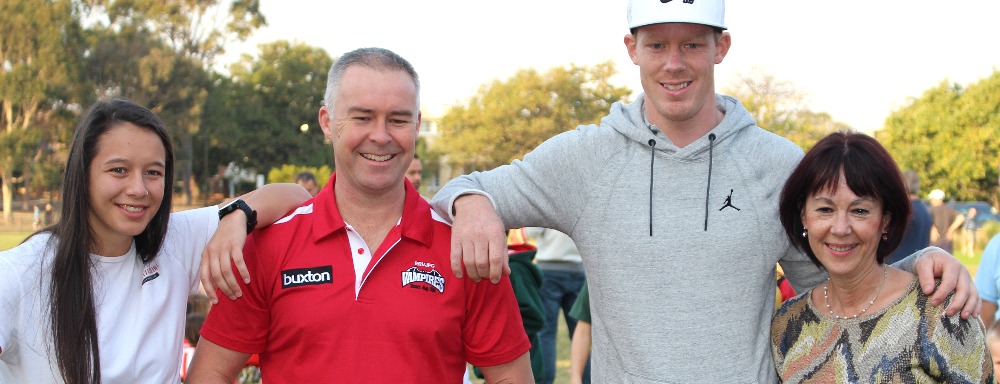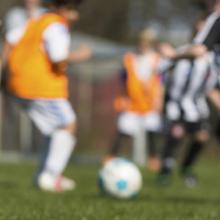Concussion
A concussion is an injury to the brain caused by a knock, blow or jolt to the head, during sport, a fall, play or an accident.
By age 16, one in five children will have suffered from concussion.
Watch as Jack asks Professor Vicki Anderson about how MCRI's research is supporting children and their families with concussion.
Watch as Jack asks Professor Vicki Anderson about how MCRI's research is supporting children and their families with concussion.
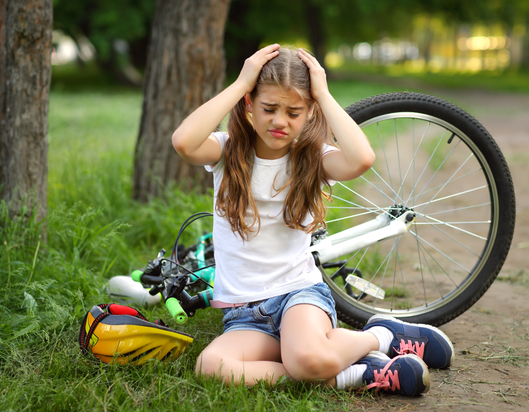
An altered mental state
When a child is concussed, they experience an altered mental state that can include unconsciousness. An altered mental state is a disruption in how your brain works and this can cause a change in behaviour.
This altered mental state can last up to a few days or weeks and sometimes needs medical treatment. Some affected children experience longer-lasting problems, including:
- Headache, nausea, vomiting, or balance problems.
- Blurred or double vision, and sensitivity to light or noise.
- Drowsiness, fatigue, and difficulty sleeping.
- Difficulty concentrating or remembering things.
- Feelings of being ‘in a fog’ or ‘slow’.
- More irritability than usual, and anxiety and mood changes such as sadness and depression.

Who does this effect?
Who does this effect?
- By age 16, one in five children will have had a concussion and one in three of those children will develop some longer-lasting symptoms.
- Children and adolescents are uniquely vulnerable to brain injury. This is because their brains are still developing. About one in four will experience a slow or even incomplete recovery after a concussion and will need some intervention.
- For families, the impacts of their child having concussion can be significant including medical costs, lost school and workdays and stress and worry for parents and children.
- Hear more in our Concussion Podcasts.
Our concussion research
Our concussion research
We discovered how common undiagnosed childhood concussions are, and the problems that can happen afterwards. We found:
- The families of about four out of five children with concussion do not seek medical treatment.
- About three in four parents who took their child to Emergency after a sports concussion did not know how severe it was.
- Almost one in four children have ongoing symptoms post-concussion including mental health problems such as anxiety, depression, post-traumatic stress, withdrawal, attention problems and hyperactivity.
- More on our concussion research
Concussion and sport
MCRI Professor Vicki Anderson is a leader in concussion research and has helped to update the world's best practice guidelines. Her work has also sparked important conversations around unique treatments for head trauma in children.
Watch as Professor Anderson and Oliver Radford discuss the impact of getting a concussion during adolescence and childhood.
Impacts of our research

Impacts of our research
- Developing the HeadCheck app in collaboration with the AFL. HeadCheck gives parents, trainers, coaches and teachers information to recognise concussion and manage recovery.
- The app guides users through questions and observations to identify whether an ambulance, hospital or GP visit are needed. Particularly in rural areas, this at-your-fingertips resource improves access to accurate information and treatment.
- Developing the Child-SCAT6 which is based on the adult SCAT. It is the first concussion recovery assessment tool for doctors which uses the most appropriate measures to assess children after a concussion. The International Concussion in Sports group endorses it as the preferred tool for international sporting.
Our vision
Our vision
We aim to improve community understanding of how concussion is diagnosed and managed, and what the risk factors are for the one in four children who are concussed and develop symptoms afterwards. We are working on how to measure when it is safe for each child to return to school and sport after concussion.
Donate to MCRI
Help our researchers make life-changing discoveries in child health.

